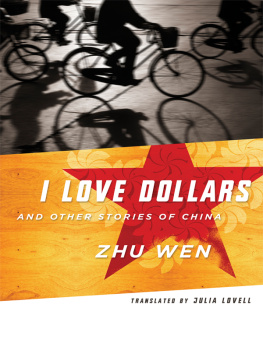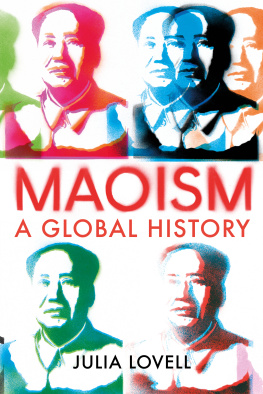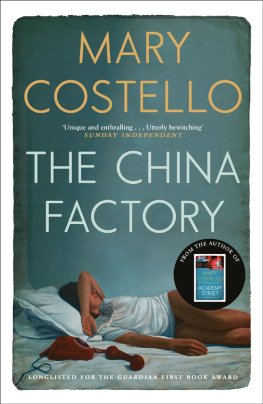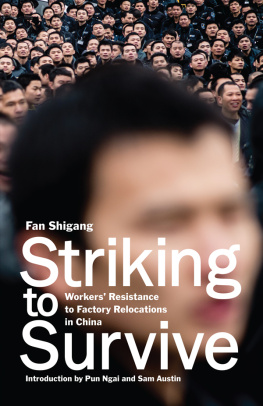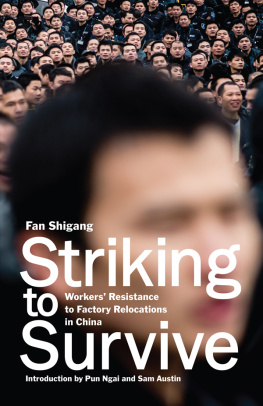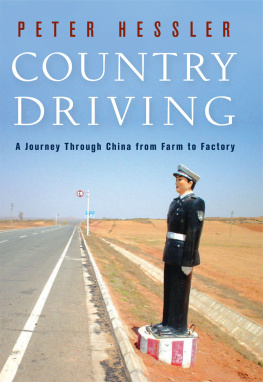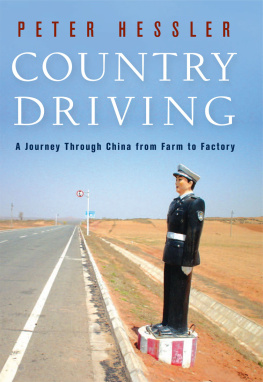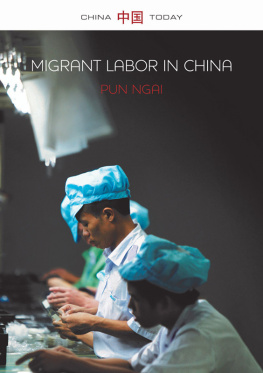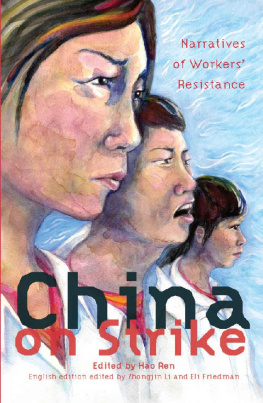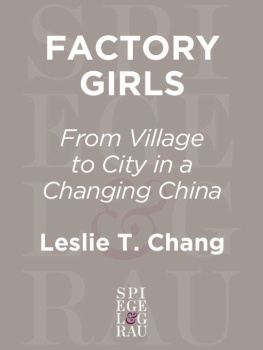
I LOVE DOLLARS
AND OTHER STORIES OF CHINA
WEATHERHEAD BOOKS ON ASIA
WEATHERHEAD BOOKS ON ASIA
COLUMBIA UNIVERSITY
LITERATURE {David Der-wei Wang, Editor}
Ye Zhaoyan, Nanjing 1937: A Love Story, translated by Michael Berry
Makoto Oda, The Breaking Jewel, translated by Donald Keene
Han Shaogong, A Dictionary of Maqiao, translated by Julia Lovell
Takahashi Takako, Lonely Woman, translated by Maryellen Toman Mori
Chen Ran, A Private Life, translated by John Howard-Gibbon
Eileen Chang, Written on Water, translated by Andrew F. Jones
Amy D. Dooling, editor, Writing Women in Modern China: The Revolutionary Years, 19361976
Han Bangqing, The Sing-song Girls of Shanghai, first translated by Eileen Chang, revised and edited by Eva Hung
Aili Mu, Julie Chiu, and Howard Goldblatt, eds., Loud Sparrows: Chinese Short-Shorts
Hiratsuka Raich, In the Beginning, Woman Was the Sun, translated, with an introduction and notes, by Teruko Craig
HISTORY, SOCIETY, AND CULTURE {Carol Gluck, Editor}
Takeuchi Yoshimi, What Is Modernity? Writings of Takeuchi Yoshimi, translated by Richard Calichman
Richard Calichman, editor, Contemporary Japanese Thought
This publication has been supported by the Richard W. Weatherhead Publication Fund of the East Asian Institute, Columbia University.
COLUMBIA UNIVERSITY PRESS
Publishers Since 1893
New York Chichester, West Sussex
cup.columbia.edu
Copyright 2007 by Zhu Wen
Translation copyright 2007 Columbia University Press
All rights reserved
E-ISBN 978-0-231-51022-6
Library of Congress Cataloging-in-Publication Data
Zhu, Wen, 1967
[Wo ai Mei yuan. English]
I love dollars and other stories of China / Zhu Wen ; translated from the Chinese by Julia Lovell.
p. cm.(Weatherhead books on Asia)
ISBN 0231136943 (cloth : alk. paper)
1. Zhu, Wen, 1967Translations into English. I. Lovell, Julia, 1975 II. Title. III. Series.
PL2852.W424W6313 2007
895.1352dc22
2006008129
A Columbia University Press E-book.
CUP would be pleased to hear about your reading experience with this e-book at .
IN 1989, the twenty-two-year-old Zhu Wen graduated in electrical engineering from a university in Nanjing (eastern China). For the next five years, he worked in a thermal power plant, during which time he began writing fiction. In 1994, he resigned from his state-allocated factory job to become a freelance author. That same year, he wrote and published I Love Dollars, a novella whose caustic vision of a spiritually bankrupt post1989 Chinaabout a father and son searching for kicks in a provincial Chinese citycaused an immediate sensation on the mainland literary scene. Whether feted or excoriated, I Love Dollars established Zhu Wen as a pivotal figure in Chinese literature of the 1990s and beyond.
Zhu Wens development into a professional writer coincided with one of the most traumatic transitional phases experienced by Chinese authors in the postMao era: the shift from the intellectually elitist 1980s to the frenetic commercialism of the 1990s, via the bloody suppression of the 1989 pro-democracy protests. After years of Maoist repression, many of them spent in internal, rural exile, over three million intellectuals and writers returned to public life in 1979, and the ensuing ten years were dominated by a high culture feverhigh-flown cultural debates about Chinas rightful path to enlightenment and modernization, about the role of Western influences and the place of tradition in this processthat climaxed in the political turmoil of 1989. As often as not, the weighty sociocultural and linguistic questions raised by serious literature lay at the heart of these discussions: contemplating the national character and the cataclysms of Maoism, rediscovering local traditions, defining a modern Chinese literature and its relationship to its Western counterpart. Chinese writers today still look back nostalgically on the 1980s as a golden age when authors were celebrities or spokesmen for the nation, when poetry and fiction led the way in pushing back the boundaries of liberalization and freedom of expression, and when the whole country could seemingly unite around discussion of a new work of literature.
All of this ended abruptly in early June 1989, when the Politburo headed by Deng Xiaoping authorized Peoples Liberation Army troops to clear the demonstrators from Tiananmen Square, and to open fire on civilians who barred their way. The bloodshed of that summer was rapidly succeeded by a crackdown on the pro-democracy movements intellectual leaders that brought to a peremptory close the climate of serious, intensely questioning discussion that had nurtured so much of the creative output of the preceding decade. Those writers who had publicly ventured out of the literary arena and into Tiananmen Square and the sphere of political debate found themselves, along with student protest leaders, facing harsh political censure: interrogation, imprisonment, or exile. The famous satirical novelist Wang Mengresponsible, in the second half of the 1980s, for promoting several liberal authors to influential positions on the literary sceneresigned as Minister of Culture, and the works of prominent writers were banned.
In the immediate aftermath of the June 4 repression, the intellectual heterodoxy of the high culture fever was ousted by a resurgence of political orthodoxy. After a decade during which writers and thinkers had struggled to break with the constrained, xenophobic worldview of Maoism, they found themselves once more confronted by the Communist governments attempt to refit thoroughly old-style socialist manacles on them, as party novelists denounced the Western bourgeois liberalization and spiritual pollution that had turned mainland culture into a disaster area. As the questioning, liberal spirit of the 1980s was excoriated as ideologically degenerate, the establishment apostles of political correctness called for cultural works that reflect socialism, give expression to communist ideals and the spirit of the socialist age... and that can fill people with enthusiasm and create unity among the masses.
In JanuaryFebruary 1992, however, Chinas supreme leader, Deng Xiaoping, offered his subjects a way out of the threatened political and cultural ice age of the very early 1990s. Convinced that Communist Chinas stability depended on the spread of material prosperity, he called for an end to ideological hang-ups about the capitalist nature of economic liberalization, and for an unleashing of market forces and encouragement of foreign investment in the interests of achieving faster, better, deeper economic growth. To the ever-pragmatic Deng, it was irrelevant whether the means were capitalist or socialist, provided that the end of preserving party rule was achieved: It doesnt matter whether a cat is black or white, he had argued years before. So long as it catches mice, its a good cat.
Translated into the cultural sphere, Dengs exhortations to profit made commercial, popular success, rather than stultifying ideological diktat, the new bottom line for literary production. As the catch-phrase of the 1990s became wang qian kan (look toward the future, which, in Chinese, neatly punned the word for future on that for money), many writers abandoned the idealistic intellectual stance of social responsibility and reflection dominant in the 1980s and joined in the capitalist free-for-all. With the literary market flooded by entertainment products (love stories from Taiwan, kung fu novels from Hong Kong) and the government phasing out the iron rice bowl (the Communist promise of a salary for life to state-sponsored writers), some serious novelists abandoned literature almost totally and instead took the plunge into business. A number of those determined to live off their writing watched, and tried to learn from, the trails to commercial success blazed by two of their peers: Wang Shuo and Jia Pingwa. Having won national, popular acclaim in the late 1980s with a string of best-selling novels that specialized in lampooning intellectuals and their (sometimes pompous) sense of national historical mission, in the early 1990s Wang led the way in showing his fellow authors how to squeeze maximum profit out of their words, repackaging his own as songs, screenplays, and television shows. A year or two later, in 1993, Jiaa critically acclaimed nativist chronicler of northwest China in the 1980sbecame one of the first and most notorious cases of a serious writer surrendering to lurid populism, with the publication of
Next page
